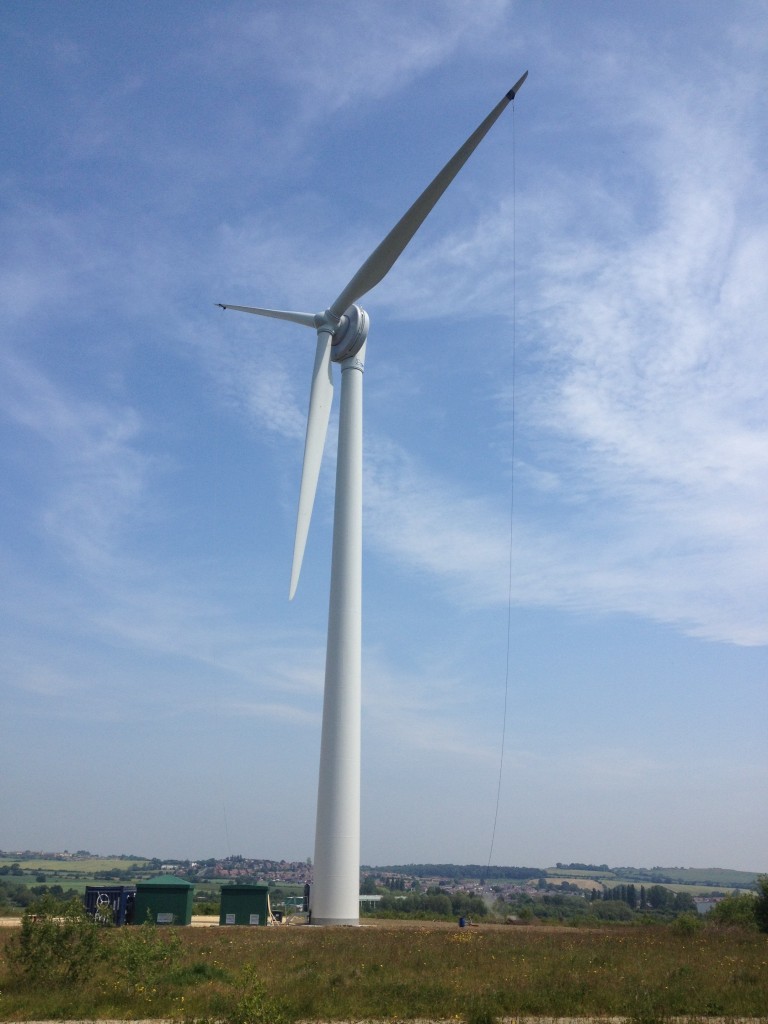
The quest to supply everything from data server halls, insurance companies to large furniture stores with green electricity has flooded the Nordic region with wind power and crashed a $100 million renewable-certificates market.
While that’s good for the environment and the image of companies from Google Inc. to Ikea Group, the growth in renewable energy has been faster than Sweden and Norway expected. That’s pushed certificate prices down 45 percent this year, undermining the incentive to invest in new wind power projects.
It’s a case of too much, too soon for the Swedish Energy Agency, the market regulator, which never really planned for expansion at this rate. Taking into account a typical wind turbine’s life of about 20 years, its preference was always for a major build-out by the end of next decade, just before state-owned utility Vattenfall AB starts to close six 1980s-era nuclear reactors.
With renewable capacity needed to meet a 2020 target either already in place or under construction, every additional investment will just add to a surplus, according to Nena AS, an industry consultant in Oslo.
“It’s like watching a python dying from starvation after devouring a pig that is too large for it to digest,” said Fredrik Bodecker, chairman of Bodecker Partners AB, an energy markets adviser in Malmo, Sweden.
Power Glut
Sweden and Norway plan to add 28.4 terawatt-hours of renewable generation by 2020, or enough to meet 10 percent of their joint annual power demand. In the renewable-certificates market, green energy producers receive securities that suppliers must buy to match customer demand. The surge in capacity hasn’t been met by increases in consumption, hence the surplus and plunging prices.
Google, which operates a data server hall in Finland, has signed at least six deals in the past two years to buy power at a fixed price directly from wind parks in Sweden and Norway. The company didn’t respond to a request for comment.
“There is just such an insane amount of wind power projects that should not really be built,” said Joachim Jernas, a senior analyst at Nena. “During 2016, decisions to build 7.1 terawatt-hours of wind power in Norway and Sweden were made.”
Green Ikea
After spending an undisclosed sum on 46 wind-power plants in Sweden between 2011 and 2015, Ikea now generates enough to supply its 20 department stores with green electricity. There are no plans for further expansion in the Nordic region, according to Jonas Carlehed, a sustainability manager at the retailer.
While Norway has decided to phase out its involvement in the certificate system by 2020, Sweden is extending its participation for 10 years and will add another 18 terawatt-hours of renewable generation by 2030. The additional capacity will further expand a regional glut as investors have pledged to build at least three new wind farms in Norway able to generate 3 terawatt-hours a year, according to Nena. A terawatt-hour can supply 200,000 homes for a year.
To slow down wind power development after 2020, the Swedish Energy Agency proposes to keep subsidy levels low until the end of the next decade by adjusting demand in the system, said Roger Ostberg, an analyst at the regulator. Such a plan could discourage investors seeking stable, long-term returns, according to Paul Stormoen, the managing director of OX2’s wind power development.
”It is not just something you can switch off and on, there is a long process behind every investment” Stormoen said.
Recommended for you
